Schools2030 PAKISTAN
Promoting a holistic, whole-child approach to teaching and learning in remote villages in Chitral and Gilgit-Baltistan.
In Pakistan, schools that eventually join the Schools2030 programme are first identified in talks with the regional education departments in Gilgit-Baltistan (GB) and Chitral. Through these discussions with Schools2030’s team, schools are identified that will be aligned with the programme’s spirit of innovation and experimentation, and a letter is then sent from the education department inviting the school to join the programme. If the school shows an interest, they are then officially declared through government channels as being part of the programme. This system ensures full alignment between the Schools2030 team, the schools, and the government.
Between the 22 schools in GB and the 38 schools in Chitral that are currently part of the programme, there are 50 classrooms across each. Teachers who attend the design workshops are usually selected by the education department and the school leaders from each school. During the workshops, teachers are usually grouped based on geographical proximity and age group, to ensure that they will be able to focus on the same challenges and that they will easily be able to continue working together during the implementation and testing phase. For secondary school teachers, where the teachers specialise in certain subjects, they are also grouped together by subject.
Our Team in PAKISTAN
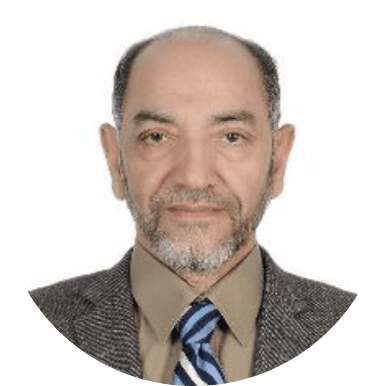
Shakoor Muhammad
National Coordinator

Mirza Hassan
Schools2030 Programme Officer (Gilgit-Baltistan)

Syed Wali Shah
Schools2030 Programme Officer (Chitral)
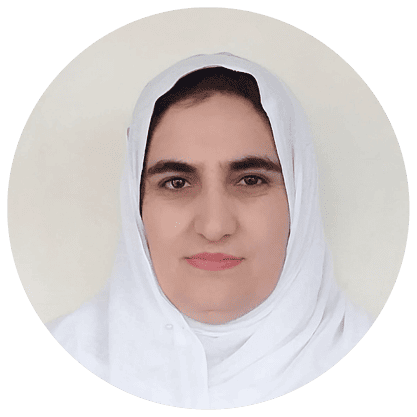
Amina Nigar
Schools2030 Programme Officer (Chitral)
Khalid Jan
Programme Officer, MERL
The Pakistani Education Context
The vibrant South Asian nation of Pakistan, officially the Islamic Republic of Pakistan, is the world’s fifth-most populous country, with a population of over 241 million. Pakistan is bounded by Iran to the west, Afghanistan to the northwest and north, China to the northeast, and India to the east and southeast. The climate varies from tropical to temperate, and many communities live in remote and hard-to-reach areas, which has a knock-on effect on education accessibility and the country’s overall progress.
Show More
Across Pakistan over 26.2 million children are out of school, 53% of whom are girls, and more than 60% of 3-5 year olds do not attend any sort of pre-primary education. Nearly 10.7 million boys and 8.6 million girls are enrolled at the primary level and this drops to 3.6 million boys and 2.8 million girls at the lower secondary level. There is a need to improve teacher education and pedagogy, as well as nurture inclusive learning environments and focus on holistic student learning.
In the largely decentralised education system, there is a drive both at national and regional level to address these challenges. Article 25a of the Constitution “provides for free and compulsory education to all children of the age group 5 to 16 years” as a fundamental right. The Prime Minister has declared a National Education Emergency (May 10, 2024) to address the challenge of 26 million out of school children and poor learning outcomes. The Foundational Learning Policies are being finalised in provinces whilst the Federal Foundational Learning Policy was launched on June 20, 2024.
The Pakistani Education Context
The vibrant South Asian nation of Pakistan, officially the Islamic Republic of Pakistan, is the world’s fifth-most populous country, with a population of over 241 million. Pakistan is bounded by Iran to the west, Afghanistan to the northwest and north, China to the northeast, and India to the east and southeast. The climate varies from tropical to temperate, and many communities live in remote and hard-to-reach areas, which has a knock-on effect on education accessibility and the country’s overall progress.
Across Pakistan over 26.2 million children are out of school, 53% of whom are girls, and more than 60% of 3-5 year olds do not attend any sort of pre-primary education. Nearly 10.7 million boys and 8.6 million girls are enrolled at the primary level and this drops to 3.6 million boys and 2.8 million girls at the lower secondary level. There is a need to improve teacher education and pedagogy, as well as nurture inclusive learning environments and focus on holistic student learning.
In the largely decentralised education system, there is a drive both at national and regional level to address these challenges. Article 25a of the Constitution “provides for free and compulsory education to all children of the age group 5 to 16 years” as a fundamental right. The Prime Minister has declared a National Education Emergency (May 10, 2024) to address the challenge of 26 million out of school children and poor learning outcomes. The Foundational Learning Policies are being finalised in provinces whilst the Federal Foundational Learning Policy was launched on June 20, 2024.
THE THREE-STEP MODEL IN PAKISTAN
ASSESS
In 2021, following the easing of restrictions around COVID-19, the Schools2030 Pakistan team engaged different stakeholders to select the five priority learning domains on which the programme will focus for different age groups. Government officials generally prioritised literacy and numeracy, whereas teachers and school level officials were enthusiastic about the programme’s focus on non-academic as well as academic skills.
With support from Oxford MeasurEd and ECD Measure, Schools2030 Pakistan worked with educators to develop learning outcome assessment tools for each of the domains for pre-primary, primary and secondary levels. They have also worked with adapted Save the Children’s IDELA tool to assess the quality of the pre-school learning environment, as well as with former Dr Sughra Choudrhy-Khan, Senior Advisor for Education and ECD Programmes at AKF Pakistan, to adapt AKF’s Inclusive Classroom Guide for the primary and secondary cohorts. The tools for each domain have been created in coordination with the Learning and Assessment Partner, the Aga Khan University, Institute for Educational Development.
Priority Learning Domains
PAKISTAN
PRE-SCHOOL
- Literacy
- Numeracy
- Health & Nutrition
- Relationship Building
- Self-Awareness/Self-Efficacy
PRIMARY SCHOOL
- Literacy
- Numeracy
- Health & Nutrition
- Critical Thinking
- Respect for Diversity & the
Environment
SECONDARY SCHOOL
- Literacy
- Numeracy
- Digital Literacy
- Leadership
- Respect for Diversity & the Environment
Access examples of assessment tools
from across our programme countries.
All these tools are available free to download below and will continue to be refined and iterated to ensure robust psychometric validity.
One takeaway I have from the Schools2030 training is that I have unique solutions. Others cannot always solve what I can. I understand that I am the one who can lead the change.
Afzal Khan, HeadTeacher, Pakistan
INNOVATE
Schools2030 Pakistan worked closely with the global team to develop the Schools2030 HCD Toolkit and to adapt and translate this resource for the Pakistani context. This is a unique resource in the country and it is likely to have a significant impact on encouraging more participatory pedagogical practices.
In 2023, the most recent 177 teachers underwent the HCD process, leading to the development and testing of 102 prototypes across pre-primary, primary, and secondary cohorts. The team also has a growing focus on evaluating the solutions for impact and scale. Ongoing, Schools2030 programme officers conduct intensive 2-day workshops for regional government representatives to ensure their comfort with the process and buy-in.
SHOWCASE
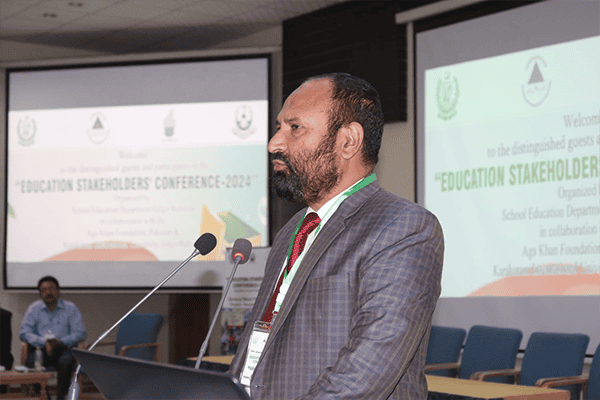
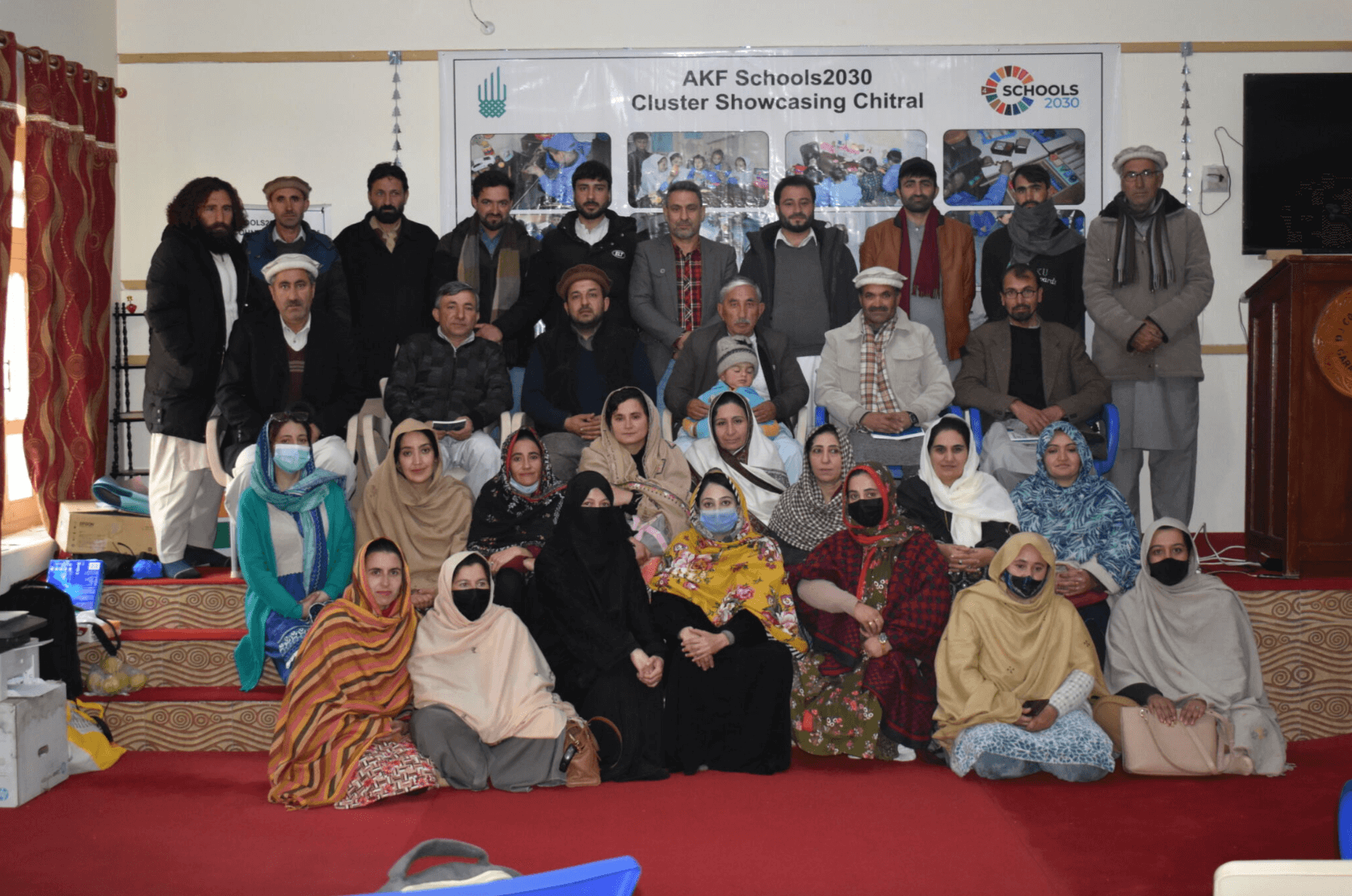
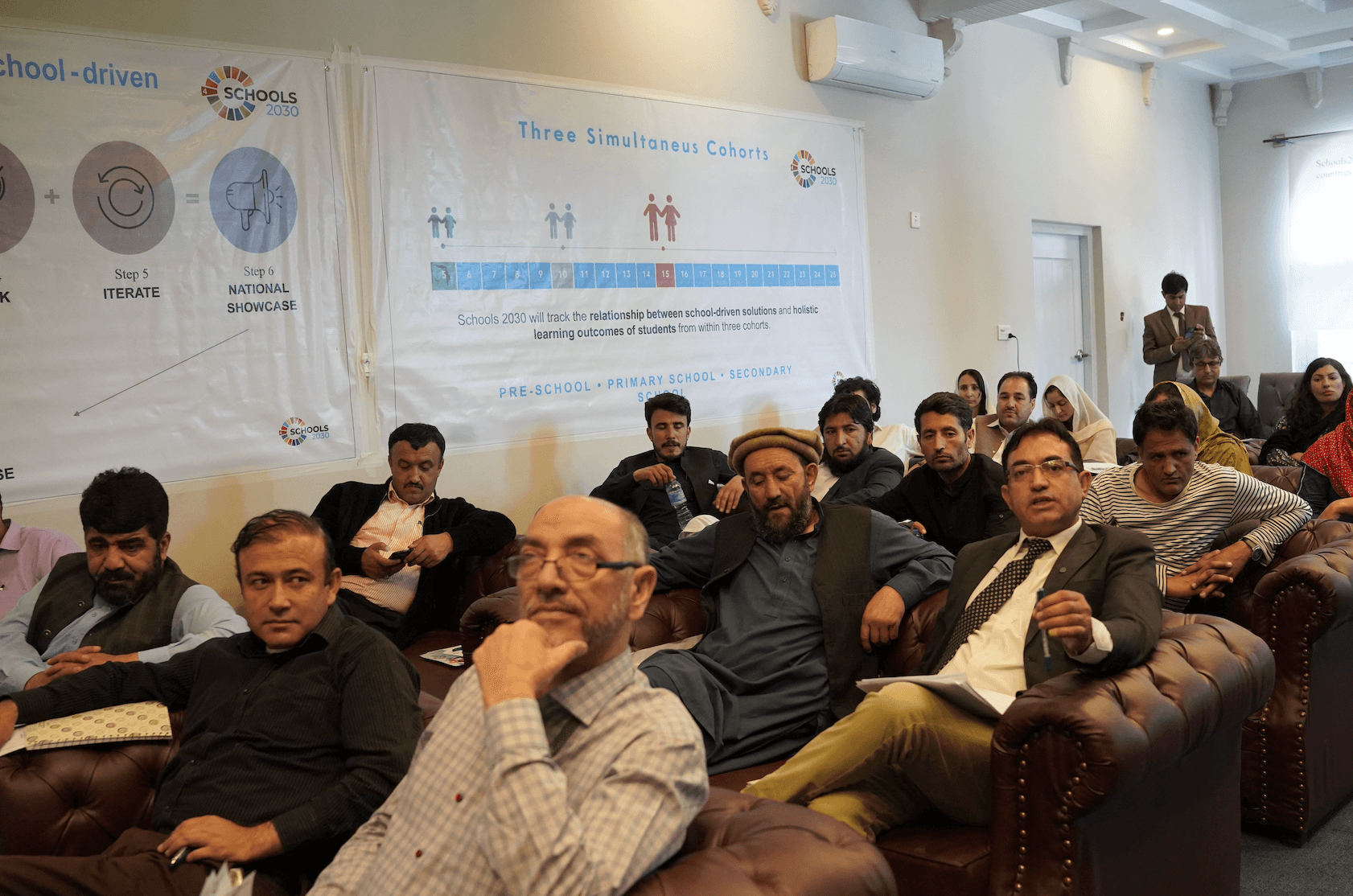
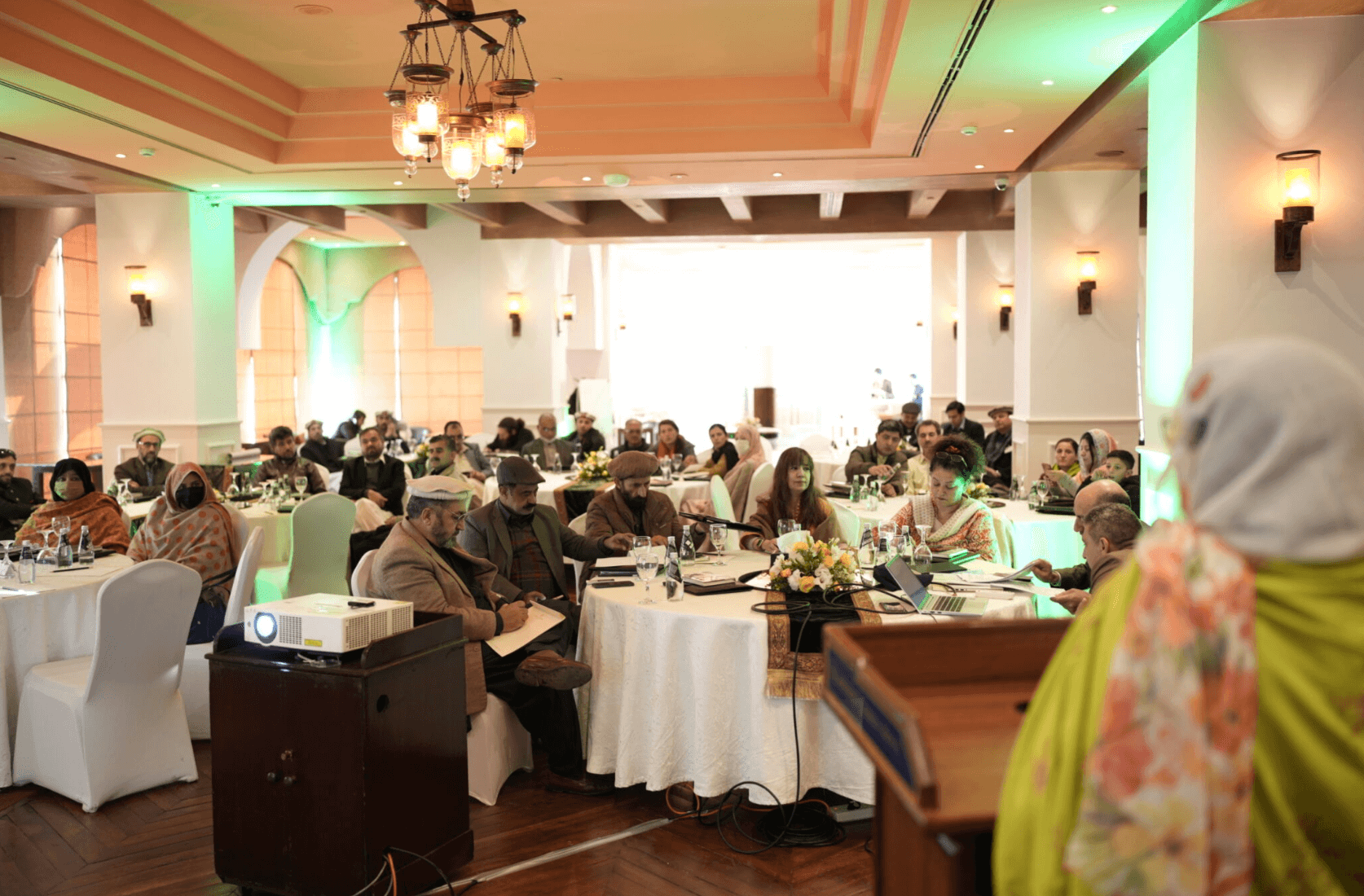
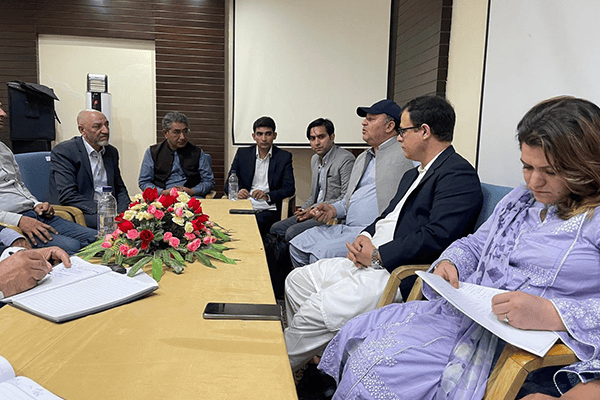
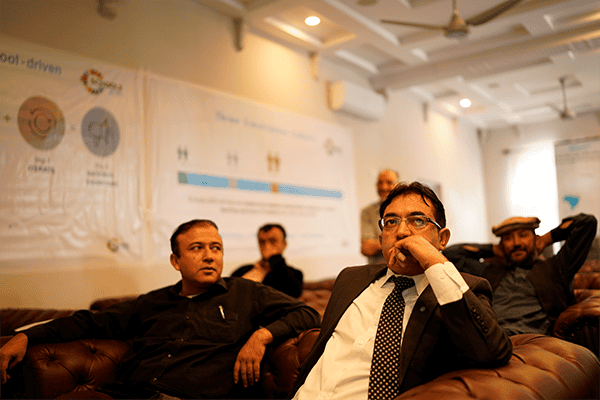
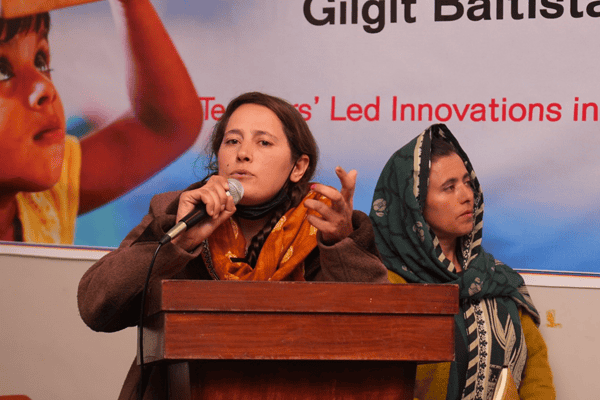
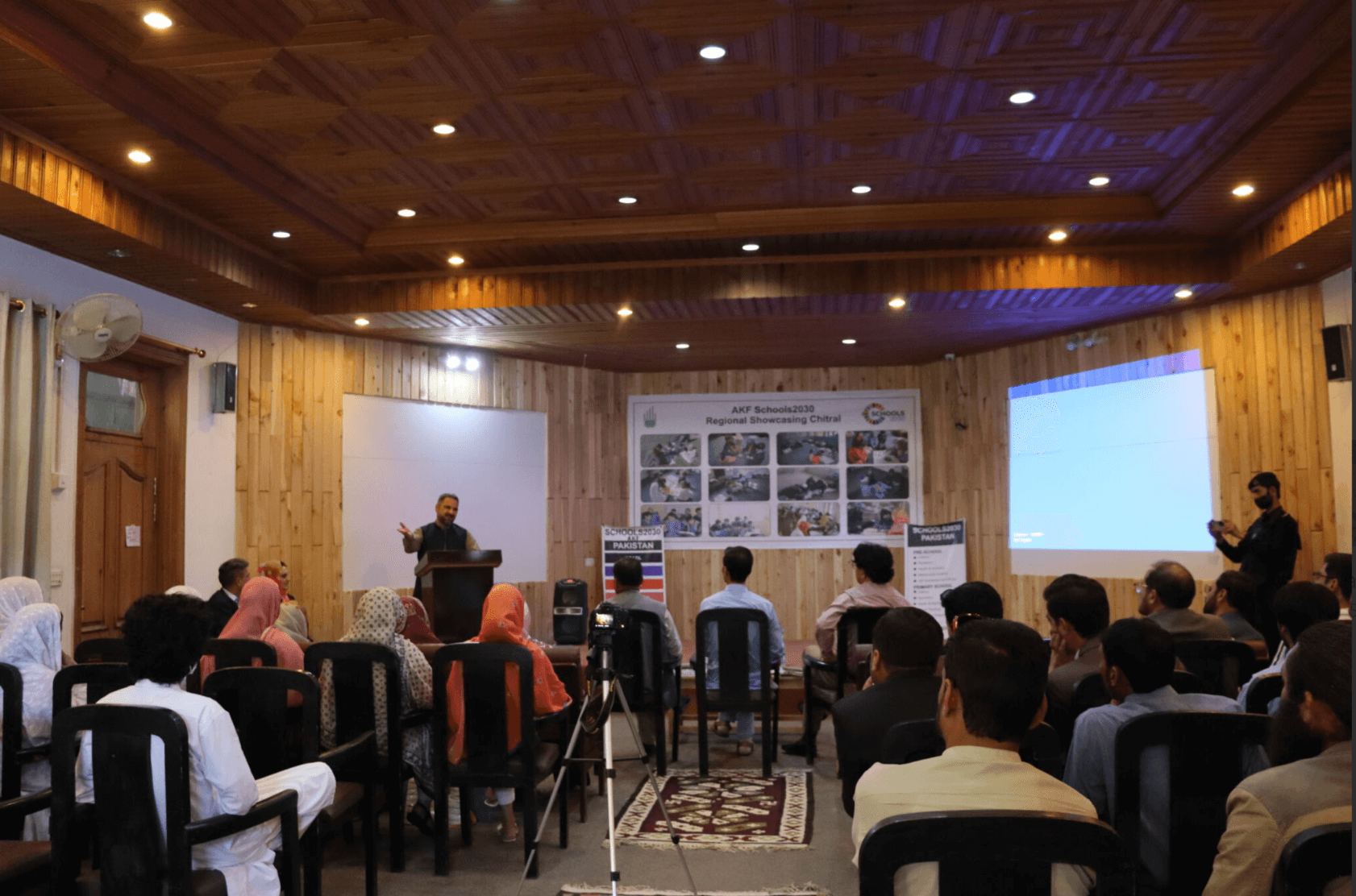
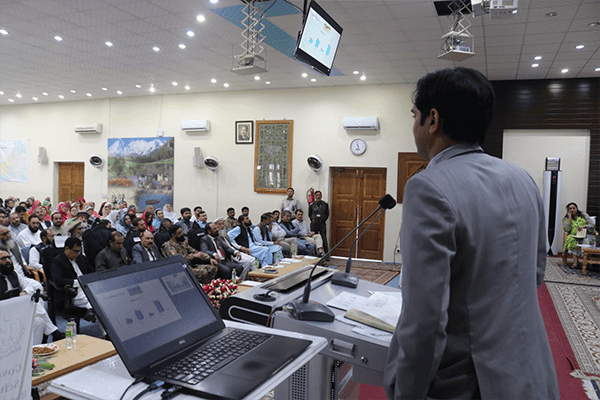
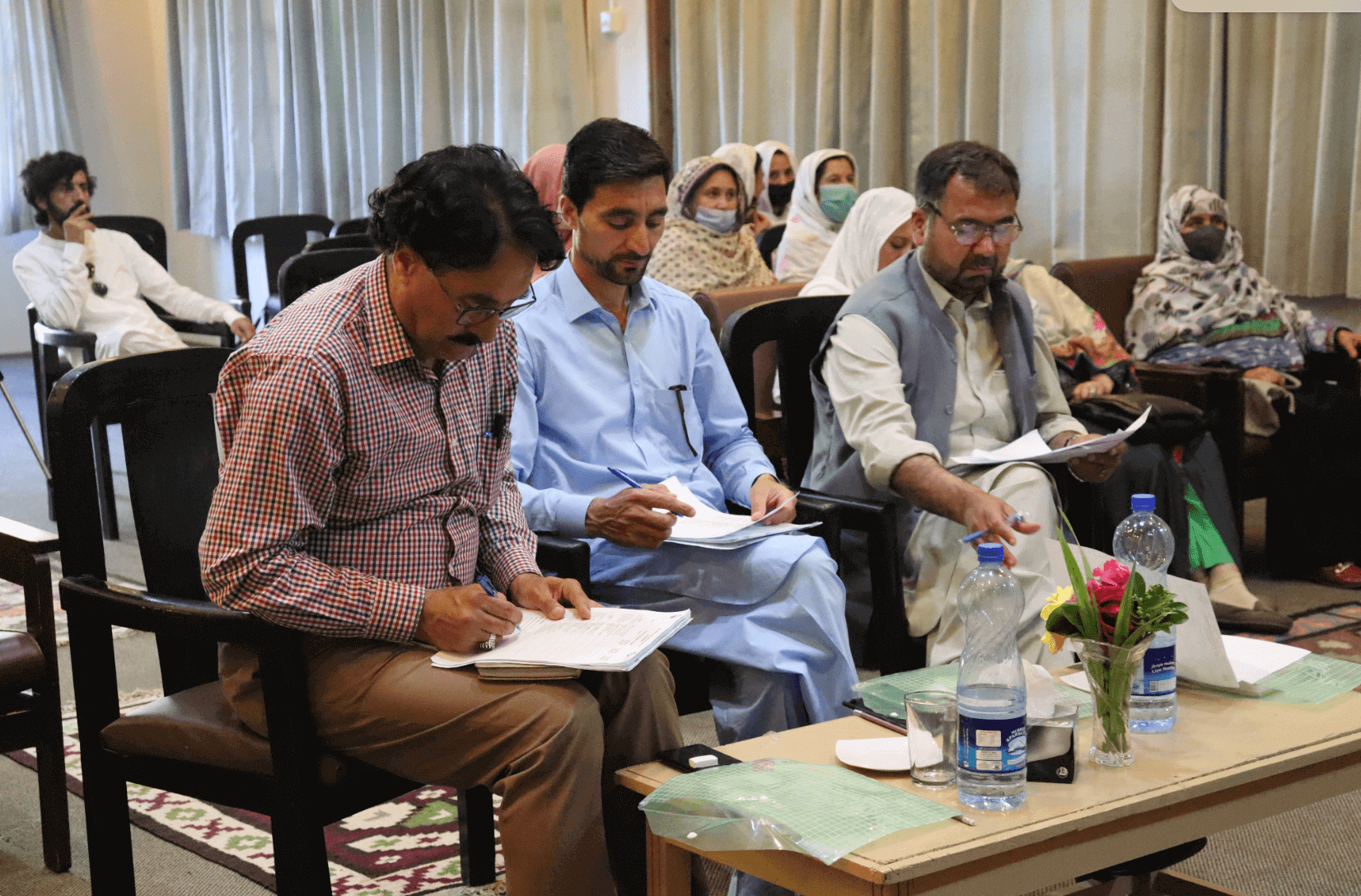
Scenes from various showcasing events
As with other Schools2030 countries, there are a number of ways that educators in Pakistan are supported and encouraged to share their solutions to school challenges with other educators and stakeholders. They are encouraged to engage with the Faved platform, both as a source of inspiration for their own design journeys, as well to share their learnings. The Schools2030 global communications team will also work alongside the teams to tell the stories of these teachers stories and put these out onto global platforms for others to learn from. Teachers are also supported throughout the process with a series of showcasing events hosted by the Schools2030 team and school, district and national level.
Showcases are held across each cluster, where every teacher involved in the programme has the opportunity to present their work to local stakeholders. This usually includes members of the Schools2030 National Advisory Committee, Schools2030 Pakistan’s assessment and learning partners, headteachers, educators from other local schools, teacher training colleges and representatives from the local education departments.
Teachers prepare for these events using Schools2030’s ‘Inspiring Change through our Stories’ mini-course, and will bring the prototypes made during the design workshops. A committee, made up of key partners from these stakeholder groups, then selects the most promising of the innovations using the criteria laid out in the Schools2030 Innovation Evaluation Tool. 10-12 educators are then invited to attend the one of two regional showcasing events, held either in Chitral or GB. The most promising of these will then go onto the national event, and potentially at the Schools2030 Global Forum.
Members of the Schools2030 Pakistan team also attend external events, including the Education Stakeholders Conference in 2024, where they present data and evidence gathered from the programme and dialogue with policymakers and education influencers about the efficacy of the Schools2030 model.
News and stories from Pakistan
IMPACT AND LEARNING
Pakistan
We regularly produce learning and research reports that inform and strengthen our programme delivery. Read and share our latest learnings for Pakistan or click below to browse all our reports.
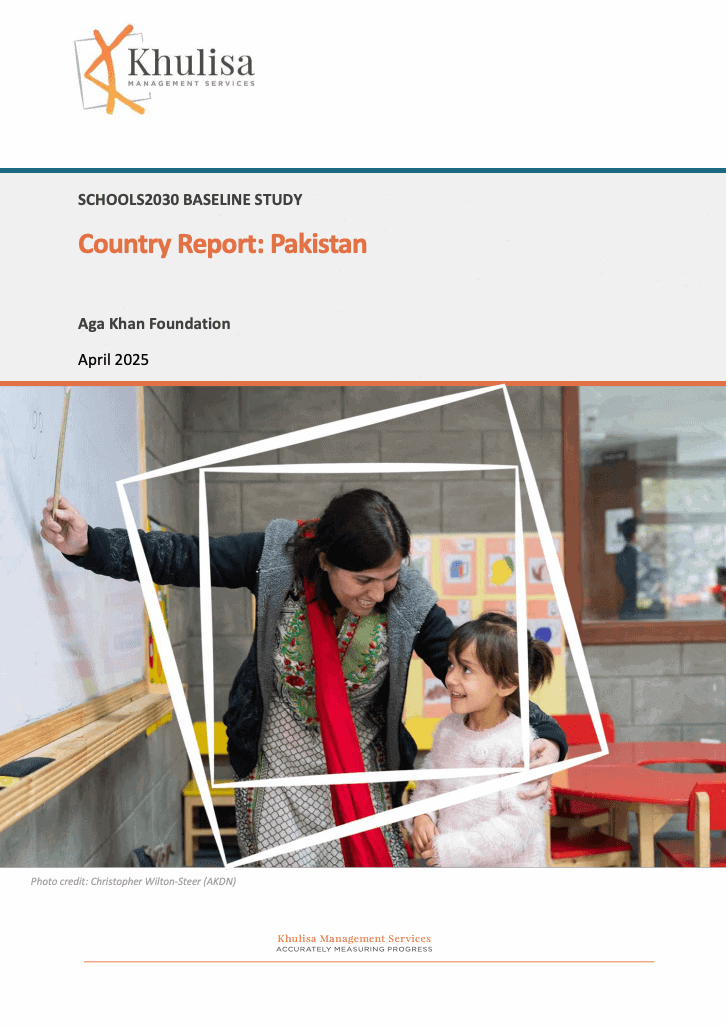
Schools2030 Pakistan Baseline Evaluation
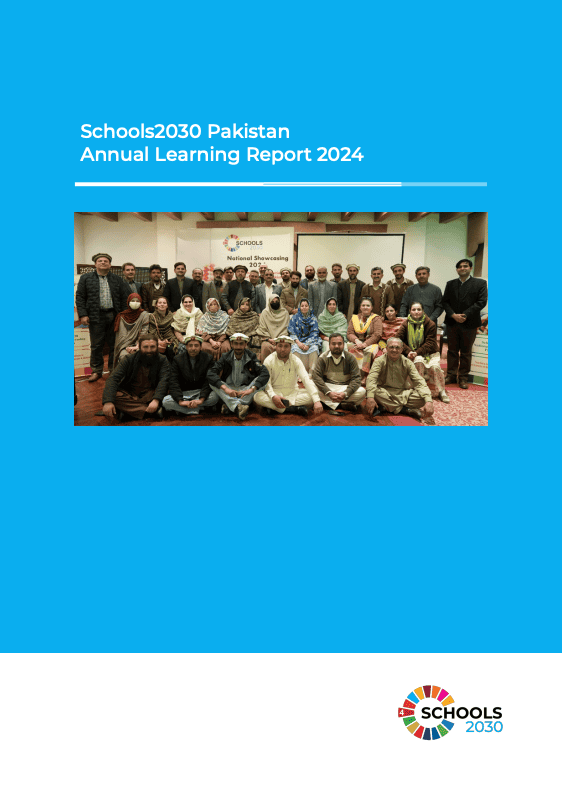
Pakistan Learning Report 2024
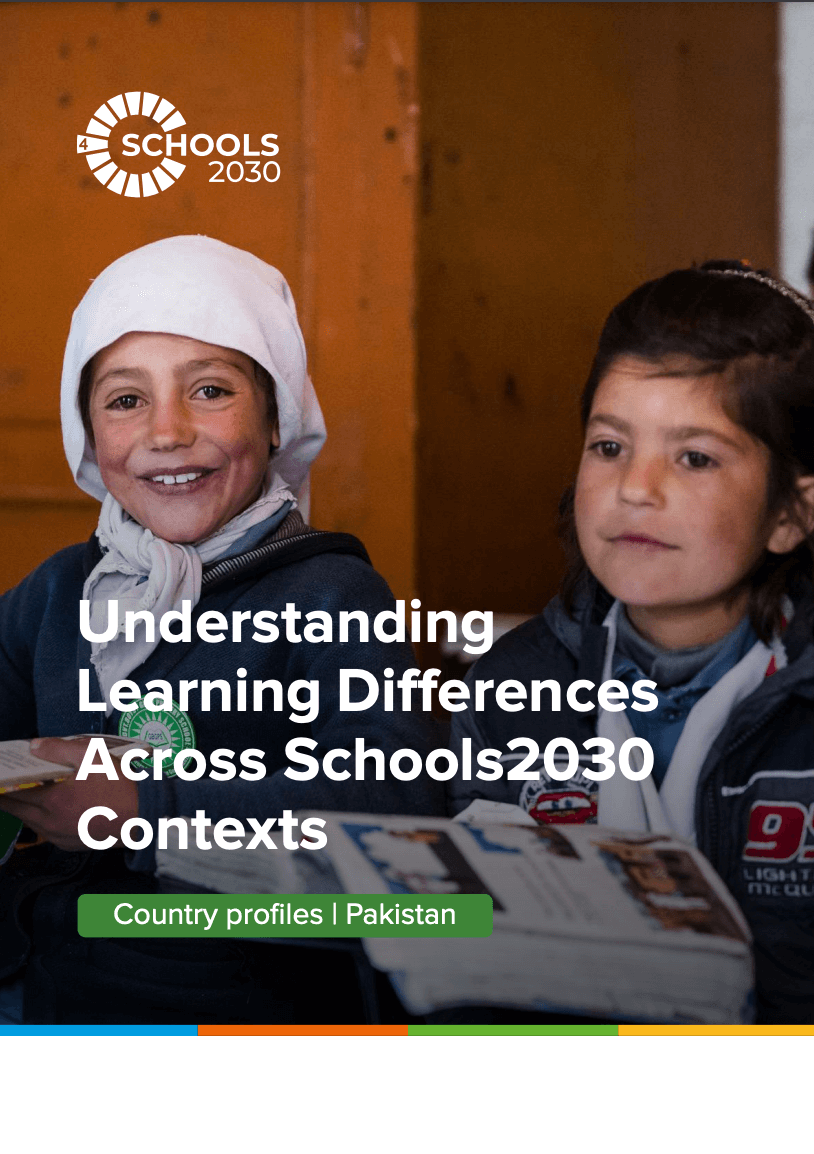
Learning Differences Report - Pakistan
OUR paKISTANI PArtners
Country Assessment Partners, Evaluation Partners and Learning Partners
In-country Assessment Partners initially supported the development of Schools2030 assessment tools and offer ongoing guidance for teachers in using them. Learning partners in each country track and measure the efficacy of the innovations and teacher professional development, and produce yearly reports with recommendations for how to make the programme stronger. Find out more about how our global and national partnerships work on our Coalition page.
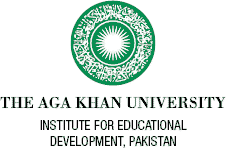
Explore Schools2030 in our other countries.








